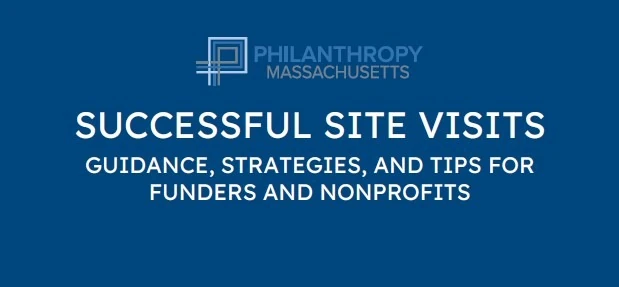Maryland Philanthropy Network is proud to support the Maryland Nonprofits 2025 Annual Conference, a two-day event dedicated to strengthening the nonprofit sector through connection, learning, and inspiration.
FIND MORE BY:
Join Maryland Philanthropy Network for a conversation at the nexus of education and health. Together, we will explore how schools are responding to children in mental health crisis, how those students are being supported, what this looks like in practice, and ways the philanthropic community can be supportive.
Maryland Philanthropy Network is proud to support the Maryland Nonprofits 2023 Annual Conference "Big Conversations on Equity and Leadership." No matter your job role, experience level, or preferences regarding virtual versus in-person programming, this two-day hybrid event features something for everyone.
RESOURCE FOR MEMBERS ONLY
View materials from "6th COVID-19 Funder Response and Coordination Call"
FIND MORE BY:
Maryland Philanthropy Network is proud to support the Maryland Nonprofits 2021 Annual Conference. This year's fully virtual three-day conference will be filled with interesting sessions surrounding the theme "Getting Ready For Growth."
Maryland Philanthropy Network will celebrate all the administrative professionals in our network with a special morning designed just for them. Join us as we recognize the work of secretaries, administrative assistants, receptionists, and other office professionals for their contributions to the workplace. This will be an opportunity to meet and build relationships with colleagues. MPN will provide a light breakfast and drinks.
This new national research report from the Dorothy A. Johnson Center for Philanthropy, Colmena-Consulting, and Philanthropy Together explores the transformative impact of collective giving on philanthropy. The report underscores collective giving groups’ role in reshaping philanthropic practices, fostering social connections, and amplifying the voices of marginalized communities.
Join the Technology Association of Grantmakers (TAG), Maryland Philanthropy Network, and other PSOs for a discussion regarding the recent release of TAG's groundbreaking version 1 of the "Responsible AI Adoption in Philanthropy" framework. During this webinar, you can expect to learn about the collaborative process that resulted in this first version of the framework and gain a deeper understanding of the framework's design principles and how they foster equity, transparency, and responsible AI adoption.
Maryland Philanthropy Network recognizes the potential burden of application and reporting practices on both grantseekers and grantmakers. Nonprofit organizations devote significant time to researching and writing grant proposals and reports, and grantmakers expend significant (often volunteer) time managing grants and evaluating how to best make a difference.
Join Maryland Philanthropy Network's Prenatal to Five Funders Affinity Group for a 3-part virtual learning series highlighting the biological, social, and systemic foundations of Early Relational Health. This will be an opportunity to engage with national and local experts, connect with fellow leaders, learn from inspiring real-world examples, and explore how fostering strong, nurturing relationships can transform the lives of infants, toddlers, and their families – laying a solid foundation for success in school, work and life.
Join us as we engage in a consultative session with Councilman Cohen, Tisha Edwards, Bryonna Harris, Karen Webber, and Dr. Michael Sinclair to discuss how we make a systemic shift to prevent and address trauma city-wide and engage in collective healing at a personal and community level.
Four members of Maryland Philanthropy Network's Funders Together to End Homelessness - Baltimore sit on the Baltimore City Continuum of Care (CoC) Resource Allocation Committee including Erin O'Ke
Please join the Behavioral Health Funders Group to hear outcomes from this year's legislative session. We will hear from the following organizations: National Council on Alcoholism and Drug Dependence, Maryland Chapter, Mental Health Maryland Philanthropy Network of Maryland and Behavioral Health System Baltimore.
 Site Visit Guide and Resources
Site Visit Guide and Resources
Nonprofit organizations often receive visits from donors and representatives of philanthropic institutions. These meetings are usually held at the nonprofit's location as part of a funder’s grant review or monitoring process and can lead to a deepening of the relationship...
FIND MORE BY:
RESOURCE FOR MEMBERS ONLY
Program materials from "Race, Equity, and Social Determinants of Health".
FIND MORE BY:

